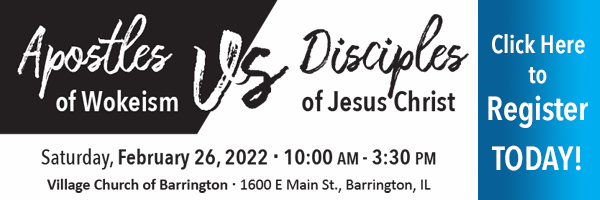An Alabama lawsuit on behalf of unborn black babies that’s making its way through the state’s courts is alleging that the abortion industry is deliberately targeting black Americans and other minorities.
If successful, the attorneys and activists behind the case claim that it might ultimately lead to the overturning of Roe v. Wade, the 1973 precedent-setting U.S. Supreme Court opinion that struck down state laws against abortion.
Even if the case doesn’t succeed in court, legal analysts and experts in the field say the implications in the court of public opinion are hard to overstate.
The lawsuit was filed by pro-life leader Amie Beth Shaver, named Miss Alabama in 1994, on behalf of “Baby Q,” an African American baby in Alabama who was unborn when the case began. Baby Q represents all other similar black babies in the womb across the state.
According to the complaint, Baby Q and other members of the “class” are being unlawfully discriminated against and targeted for abortion by the industry. Abortion giant Planned Parenthood acknowledges its roots in the eugenics movement, although it says it’s working to rectify that legacy.
“About 80 members of Baby Q’s class, which is African American babies in the womb, lose their lives in abortion every week in Alabama,” Sam McLure, the lead lawyer representing the babies, told The Epoch Times in a phone interview. “Enough is enough. This has to stop.”
Several leaders involved in the case told us that Planned Parenthood and the abortion industry more broadly have a long history of racism and support for eugenics, the highly controversial idea that humanity should be “improved” by weeding out allegedly inferior genes from the population.
“This case really boils down to the question of whether states have the right to prohibit eugenics abortion,” McLure added.
Many of the black leaders involved in the case were also behind the Equality Proclamation, signed in 2020 on the 158th anniversary of the Emancipation Proclamation, to shed light on what they describe as the systematic targeting of black babies.
Why Alabama?
Conservative Alabama is the best jurisdiction in the United States to wage this fight, McLure said.
Because of a measure approved by about 60 percent of voters in 2018, Alabama has one of the strongest protections for the unborn in its state Constitution. It says the policy of the state is “to recognize and support the importance of unborn life and the rights of unborn children, including the right to life.”
The Alabama Supreme Court has repeatedly recognized the personhood of unborn babies in other cases not directly involving abortion, McLure and other attorneys involved in the case told The Epoch Times.
The Baby Q case also hinges on a state law known as the Human Life Protection Act, which makes conducting an abortion a felony punishable by up to life in prison. Signed into law by Gov. Kay Ivey in May of 2019, the measure bans all abortions in the state except to protect the health and life of the mother.
That law is widely seen as one of the strongest in the nation prohibiting abortion. It is even stronger than the Mississippi statute currently being considered by the U.S. Supreme Court in Dobbs v. Jackson Women’s Health Organization, a case many legal experts on both sides of the debate believe might overturn or at least scale back Roe v. Wade.
In October of 2019, a federal court issued a preliminary injunction against the Alabama law, arguing that it violates existing U.S. Supreme Court precedent.
As a result, Ivey and state Attorney General Steve Marshall have declined to enforce it for now, as the U.S. Supreme Court once again takes up the issue of abortion.
Legal filings and attorneys in the Baby Q case also point to the Ninth Amendment to the U.S. Constitution, which protects unenumerated rights, as well as the 14th Amendment, which provides for equal protection under the law.
Finally, the plaintiffs cite the U.S. Constitution’s 10th Amendment, which reserves to the states or the people all powers not specifically surrendered to the federal government, as authorizing or even requiring state action in defense of the right to life.
Intervening in the case on behalf of Baby Q are almost 50 state lawmakers and a supermajority of the state Senate, as well as dozens of black leaders from across America alleging that the abortion industry is targeting people based on race.
State Republican leaders are also active on the issue, with the executive committee calling on all GOP officials to use every tool at their disposal to stop abortion in Alabama, including shutting down clinics.
The Objective
The Baby Q case, originally filed in October of 2020, is aimed at forcing the government “to protect preborn African-American children from discrimination and to ensure their equal protection under the law,” according to court filings.
“The abortion industry has systematically targeted the African American community for extermination by abortion, and this history is undisputed,” said McLure, citing historical evidence and even recent statements.
More than 20 million black babies have been aborted in the United States, and are three to five times more likely to be aborted than white babies, said McLure, who noted that this sort of racial targeting is clearly prohibited under state and federal law.
“In New York City, more black babies are killed in abortion than are born alive,” he continued. “In Alabama, black Americans make up 27 percent of the population, and yet they make up more than 60 percent of the abortion cases. Nobody can argue that this is not deliberate.”
The plaintiffs in the case are asking the court to order Ivey to enforce the Human Life Protection Act and protect unborn children in the state from abortion and discrimination based on their race.
Eventually, the goal is to overturn Roe v. Wade and restore protections for the unborn that the landmark U.S. Supreme Court case undermined nearly 50 years ago.
Because equal protection and prohibitions on racial discrimination are so firmly established in U.S. jurisprudence, the activists and attorneys behind the case believe it might be a game-changer in the abortion debate.
The next major milestone will come on April 20, when the judge will hold a hearing on the issue after more than a year of inaction.
“Finally, on April 20th, these African American babies are going to get their day in court,” McLure said.
The previous hearing, which took place virtually on Zoom, dealt with whether the case should be public. While the abortion industry is seeking to keep the case behind closed doors, the state judge expressed a willingness to keep the proceedings open.
Attorney Brent Helms, who is representing the legislators seeking to intervene in the case, explained part of the rationale in a phone interview. “If the judge denies this case, that offers us the opportunity to get to the Alabama Supreme Court,” he said. “When the legislature looks at this case, Alabama’s law is more strict and says that the unborn child is a person with constitutional rights,” Helms continued. “Those rights cannot be denied without due process and equal protection.”
He added, “That means the child’s right to life would supersede or at least compete with the mother’s alleged right to privacy, as the right to life is an enumerated right, while the mother’s privacy rights to obtain an abortion were discovered in the penumbras as opposed to actually being written down.”
Regardless of how the state circuit court judge rules, the losing side is expected to immediately appeal to the Alabama Supreme Court. The court is known as one of the nation’s more conservative state supreme courts. From there, it’s practically certain that the losing side will appeal directly to the U.S. Supreme Court.
The Role of the US Supreme Court
Numerous legal experts told The Epoch Times that the courts involved in the Alabama case may wait until the U.S. Supreme Court rules on the Mississippi law banning abortions after 15 weeks before making any major decisions.
However, the Mississippi statute only protects unborn babies after 15 weeks, while Alabama is seeking to protect them from the time of conception. The Baby Q case also deals with racial discrimination, while the Mississippi case doesn’t.
The plaintiffs and intervenors hope the apparent conflict between the Alabama state Supreme Court’s positions and the federal district court’s rulings will be settled by the U.S. Supreme Court in favor of protecting the right to life of the unborn in Alabama and beyond.
McLure, the lead attorney for Baby Q, said justices from theU.S. Supreme Court have been leaving “breadcrumbs” in their opinions regarding what elements they might like to see in a major abortion case.
In his concurring opinion issued in the case of Box v. Planned Parenthood, for example, Justice Clarence Thomas raised the issue of racial targeting as an important component.
“We think the type of case the U.S. Supreme Court wants to take on to return abortion issues back to the states involves eliminating the abortion industry’s history of racial targeting, a purely state law claim, and a reliance on the Ninth Amendment of the U.S. Constitution,” McLure said, noting that the Baby Q case had all of those.
“Obviously, we care about all life in the womb, but this case in particular deals with the racial targeting of children of African descent and this is a key issue,” he added.
The U.S. Supreme Court’s own 1973 ruling on abortion acknowledged that if the “suggestion of [a fetus’] personhood is established, the appellant’s case, of course, collapses, for the fetus’ right to life would then be guaranteed specifically by the [Fourteenth] amendment.”
The people of Alabama, as well as many medical and scientific experts, have concluded that unborn children are indeed persons, attorneys and leaders involved in the case said. Thus, under the reasoning in Roe v. Wade, the high court must act.
The hope is that, through the courts, the abortion industry can be prevented from targeting unborn persons based on race, and eventually, state governments can regain the authority to protect all unborn lives, McLure said.
Racism in Planned Parenthood, Abortion
Dozens of prominent black leaders from across the United States are involved in the case, arguing that Planned Parenthood and the abortion industry have been deliberately targeting the nation’s African American population and other minorities.
It started with Margaret Sanger, the founder of Planned Parenthood, black leaders told The Epoch Times.
In her writings and her speeches to groups such as the Ku Klux Klan (KKK), Sanger openly advocated for eugenics to control the reproduction of populations she believed were less desirable.
Indeed, in 1939, Sanger launched the infamous “Negro Project” to pay and train black leaders to promote birth control and other measures in the black community.
Eventually, when Alan Guttmacher took the helm of Sanger’s organization, abortion became a major element of the campaign, Georgia gubernatorial candidate and Baby Q intervenor Catherine Davis told The Epoch Times in a phone interview.
After Guttmacher and his allies were able to get the U.S. Supreme Court to strike down state laws protecting the unborn, “Planned Parenthood established their abortion clinics primarily in communities of color across America,” Davis said.
Among other evidence, she pointed to an investigation using 2010 Census data showing that about 80 percent of the organization’s abortion clinics were located in minority neighborhoods.
Planned Parenthood would claim that their clinics are located where there is “the greatest need,” Davis said.
“But if you look at their marketing, they are regularly targeting black Americans,” she added. “On Halloween, they even tweeted out that it was safer for a black woman to have an abortion than to carry the baby to term. This is outrageous.”
According to Davis and the dozens of other black leaders involved in the case, this is racist population control and eugenics.
“The closest example of this is what Hitler did in Nazi Germany,” she added. “Look at Planned Parenthood: This is exactly what Hitler was doing to Jews, but Sanger’s program was more successful because they take care to disguise their agenda as ‘helping’ women and protecting their ‘right’ to abortion.”
Another prominent leader involved in the case, Martin Luther King Jr.’s niece and pro-life leader Alveda King, called this battle “the civil rights issue of our time.”
“No racial group in America has ever been more left out of societal protection nor suffered more deliberate discrimination, dehumanization, agonizing dismemberment, and death legally imposed upon them than black children,” she said.
“The Baby Q case is a gauntlet,” King told The Epoch Times in an email. “Pray that the hammer of justice will rule in favor of life.”
The controversial racial component of abortion also was highlighted nationally in the 2009 documentary “Maafa 21: Black Genocide in 21st Century America,” which argued that the targeting of black Americans through abortion constitutes a genocide.
Planned Parenthood Data Speaks
In recent years, as the Black Lives Matter movement gained prominence, almost 20 Planned Parenthood affiliates have issued public acknowledgments of racism within the organization.
Planned Parenthood of Greater New York, for instance, condemned Sanger’s “racist legacy,” while announcing that her name would be removed from its building.
“There is overwhelming evidence for Sanger’s deep belief in eugenic ideology,” the group said. “Removing her name is an important step toward representing who we are as an organization and who we serve.”
Planned Parenthood of Pacific Southwest, meanwhile, acknowledged “white supremacy of the past and present,” including “our own organization” and the “implicit bias” that it said still exists within Planned Parenthood today.
“Planned Parenthood has been complicit in upholding systemic racism,” the group’s Illinois affiliate said.
Similar statements confessing to “present participation in white supremacy” and acknowledging that Sanger’s “racist ideals” have “shaped Planned Parenthood today” were issued by numerous other affiliates.
And yet, the massive disparities continue, advocates say. According to a legal filing by black leaders in the Baby Q case that cites state health statistics, 63 percent of the 7,538 “unborn children killed by abortion providers in Alabama” in 2019 were black.
This shows abortion providers “intentionally target African American children,” the black leaders said in the legal filing. And this “violence” based on race would never be tolerated in any other context, they argued.
Where the Case Goes Now
Later this month, a hearing on the case will be held in state court in Alabama to hear arguments from the various parties involved.
In its response to the lawsuit, Planned Parenthood Southeast asked the court to dismiss the case, based on lack of jurisdiction and Baby Q supporters’ alleged failure to identify a claim where the court would be able to provide relief. Neither the national Planned Parenthood office nor the Southeast office responded to requests for comment about the Baby Q litigation or the claims of racism.
The governor’s office is taking the same position as the abortion industry, urging the court to dismiss Baby Q’s case and refuse to allow legislators behind the Human Life Protection Act to intervene.
Gov. Ivey’s office didn’t respond by press time to requests for comment on why the governor has declined to enforce the Human Life Protection Act or why she is asking the court to dismiss the case. Attorney General Steve Marshall’s office also didn’t respond by press time.
Col. John Eidsmoe, a prominent constitutional scholar in Alabama who has worked closely with multiple state Supreme Court justices, told The Epoch Times that he doesn’t anticipate a ruling by the Alabama courts until after the U.S. Supreme Court issues its opinion in the Mississippi case. That ruling is expected by this summer.
“The general feeling is that the Supreme Court will uphold the Mississippi law, but it is not clear yet whether it will overturn or simply modify Roe v. Wade,” added Eidsmoe, a professor of Constitutional law at Oak Brook College of Law & Government Policy as well as senior counsel for the Alabama-based Foundation for Moral Law.
Alabama’s Supreme Court, he said, would likely want to wait for a favorable decision from the U.S. Supreme Court on the Mississippi law before moving on this. Eidsmoe also believes that, with its current makeup, the U.S. Supreme Court would be likely to uphold Alabama’s law protecting the unborn as well.
Potentially even more important than the legal issues is what this case could do in the court of public opinion, he said.
Multiple experts and leaders involved in the case told The Epoch Times that these may be the last days for Roe v. Wade, legal abortion, and racial targeting of minorities by the industry. The outcome of the Baby Q case may play a key role in that historic shift.
This article was originally published by the The Epoch Times.



